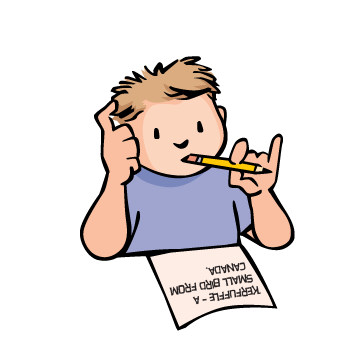Boston Children's Museum
308 Congress Street, Boston, MA 02210
617-426-6500
© Boston Children’s Museum 2024
Website Design by JackrabbitIntroducing new words to children is a lot of fun—especially when they get to invent their own definitions. This game gives kids a chance to use language playfully while they develop vocabulary and learn to use a dictionary.
If using paper instead of index cards, cut the paper into smaller pieces (about 3″ x 3″). You’ll need enough pieces so that each student (or team) has 5-15 pieces.

Ask your students if they have ever learned a new word they had never heard before. When they first heard it, what did they think it meant? Was the real definition the same as the one they had invented in their heads? Tell the class that they are going to play a game in which they make up definitions to new words and try to fool their classmates with their made-up definitions.
Can you guess the definitions of these new words?
After 2 words have been played, bring your students together to talk about what they have done. Is it easy or hard to guess what words mean? Was anyone close in guessing the correct definition? Did anyone have any funny definitions? Do some words give us clues about what they might mean? Does anyone have any tips for inventing believable definitions?
Send students back to keep playing until the session is over. Play this game regularly – kids will get pretty good at creating inventive definitions to words, and they’ll also start to notice some patterns in word parts that will clue them in to what certain words mean.
Variations: